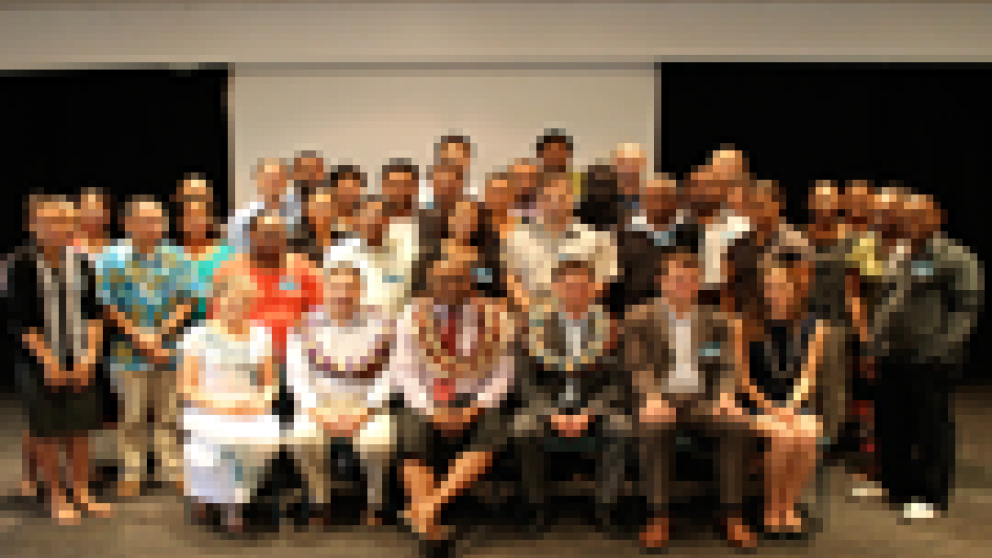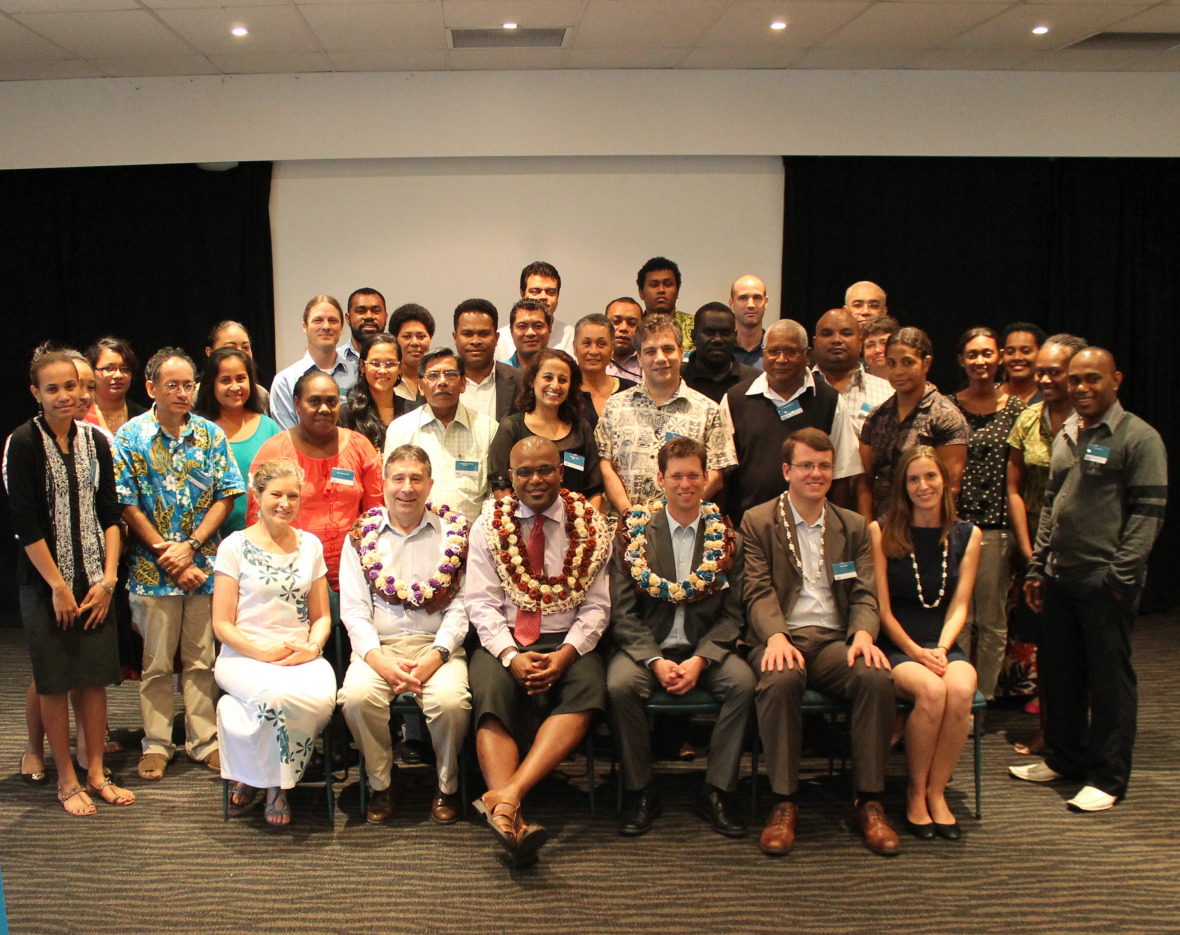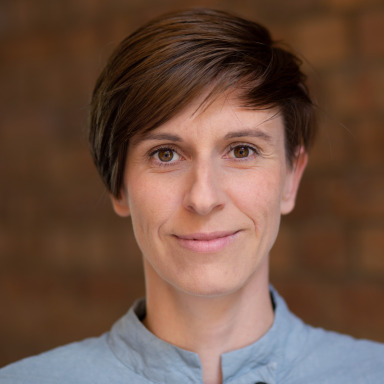Headline:
Pacific Island States discuss Climate Engineering

Small island states will be among those most affected by climate change impacts like sea-level rise. Efficient solutions to reduce atmospheric CO2 are needed yet climate engineering is unlikely to be a quick or comprehensive solution. This is one of the key messages of the “First Open Discussion Workshop about Climate Engineering: Perspectives from Pacific Small Island States”. The workshop was jointly organized by the IASS and the Pacific Centre for Environment and Sustainable Development (PaCE-SD) and took place on 21-23 August in Suva, Fiji. With over 30 participants, it gathered representatives from Pacific small island states, international organizations, local NGOs and the University of the South Pacific. Its aim was to exchange perspectives on the possible role of climate engineering when addressing the challenges the island states are facing.

Although the small island states bear little responsibility for causing climate change, they are facing disproportionally large consequences due to their relatively fragile ecosystems, limited resources, low elevation, small size and remoteness from other regions. Against this background, quick, effective and comprehensive solutions are urgently needed. Climate engineering, a set of diverse technologies proposed to combat climate change by intervening in the climate system, has sometimes been portrayed as possible “quick fix” to the problems of climate change. However, given the many risks and uncertainties of climate engineering, it is of utmost importance to develop an informed opinion about its potentials and limitations prior to any serious testing, not to mention deployment. The first dialogue workshop organized by the IASS and PaCE-SD was thus intended as a forum for exchange on the science, uncertainties, risks, ethics and current governance of climate engineering. IASS scientific director Dr. Mark Lawrence, and IASS scientists Achim Maas and Katharina Beyerl provided five lectures on various aspects of the topic as a basis for an informed discussion, and local colleagues from PaCE-SD facilitated working group sessions and plenary discussions.
During the workshop discussions the participants agreed that:
(1) Intense international mitigation efforts must be the first priority, as it is clearly the safer option;
(2) more research, awareness and transparent debate about climate engineering is needed;
(3) climate engineering technologies should not be implemented until they can be scientifically proven to be a sufficiently safe option for all potentially affected;
(4) regulatory and enforceable governance structures are needed before any significant field testing and implementation.
For further information about climate engineering: http://www.iass-potsdam.de/research-clusters/sustainable-interactions-atmosphere-siwa/climate-engineering/interdisciplinary

